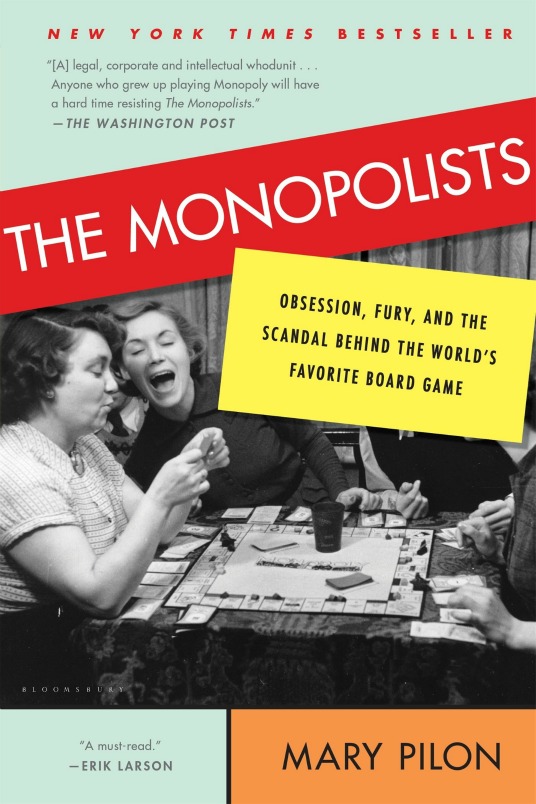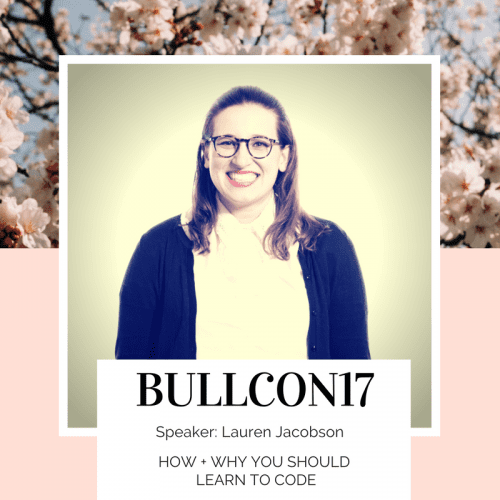I sometimes am called upon to defend living in New York City, or the idea of moving oneself to a big city in an attempt to “make it.”
You can write books from anywhere, after all. New York rents and New York noise are only hindrances to that process, no?
I have often replied: Well, showing up in New York signals to certain people that you’re the kind of person who shows up. If you’re emailing someone out of the blue (in virtually every case I have looked up a stranger I have wanted to email, that person has turned out to be in New York), it helps to throw in, “I work in Chelsea and would love to grab coffee, but of course I understand if a phone call is more convenient.” When I first had an address “on the grid,” on W 39th St, I put it in the signature of all my emails, home security be damned.
Ideally, though, one doesn’t have to email too many people out of the blue. You just get to New York, meet a bunch of cool people, and wait ten years until a few have left but the rest have amazing careers.
Undoubtedly, there are other places you can do this. I don’t mean to disparage your city. Unless you want to disparage your city, and then I encourage you to get the hell out and go someplace full of ambitious people doing things, where you’re not dragged into mediocrity or – perhaps worse – lulled into complacency by praise from people who don’t do much. Those people are lowering your bar. Don’t let that happen.
But if you want to tell me about the entrepreneurial energy of Detroit or the outskirts of Vegas, okay! LA is a mystery to me. San Francisco is its own planet. London, I couldn’t tell you. I’m just saying: Show up where things are happening. If you are at all able, make it your default to be around activity and competence.
One certainly does hear that New York is becoming a “town of billionaires,” which is true of many Manhattan apartment complexes – but a lot of publishing, media, arts, and creative organizations are peopled by women who work in Manhattan and live in Greenpoint. For example. New York is no longer a place for struggling artists, but it’s still a fine place for ballsy careerists (and maybe ballsy artists). It’s true that New York is losing its charm, its mom-and-pop stores. Instead, we have a Chase and a Citibank on every block. We also have taken all the millionaires and billionaires who could buy your product or your art, and helpfully corralled them for you on a small island. Show up.
All of this is leading up to: literally all of my close female friends (and some colleagues and friends of Bullish) have books out. That is awesome and I’m going to brag about them now and forever.
Let’s start here. Molly is my best friend of about twelve years. This is her memoir. I’m in it (illustrated, even!), but it’s a fantastically big story, from hustling as a “naked girl model” to political reporting from Guantanamo and the Middle East.
Molly Crabapple “Drawing Blood”
In 2008, Crabapple became house artist for The Box, a NYC nightclub catering to elite clients. She earned recognition and monetary rewards for artwork that satirized the excesses of the rich, yet her achievements left her feeling hollow. The world outside The Box was collapsing while she “was painting pigs in Nero’s nightclub.” After meeting up with journalist Laurie Penny and becoming involved in the Occupy movement, Crabapple discovered her true calling as a political artist and, later, writer. Lavishly illustrated, the book offers a candid portrayal of an artist’s journey to self-knowledge and fulfillment. The author celebrates the function of art as an act of “hope against cynicism [and] creation against entropy.”
Compelling reading about how art gave the author “a way to see, to record, to fight and interrogate…to find joy where once I could see only ash.”
– Kirkus review
Janice is the author of the acclaimed Girlbomb: A Halfway Homeless Memoir (2006). We met around that time when she was speaking at a writers’ conference. Since then, Janice popped into the 2014 Bullish Conference, having previously offered to babysit my baby in Florida for an entire weekend, which is the largest single favor anyone has ever offered to do for me in my life. We’ve hung out on Fire Island a few times, wearing practical clothing and eating seafood, as one does. We share gentlewomanly interests.
The main character in I, Liar is an asexual lesbian and no one really bats an eye at that, nor is it the focus of the story, which is a joy. I didn’t notice until about 60% of the way through that all of the characters are female, and I was like AHHH THAT IS REFRESHING.
MANIPULATIVE. TRAINWRECK. PSYCHO.
Elizabeth Madigan needs too much love.
As the neglected daughter of a beautiful, selfish mother, she learned early in life how to get attention through lies, but it’s never enough. At age eight, she pretends to have cancer. At age twelve, she lives a thousand lives online. At age seventeen, she’s in inpatient treatment for self-harm, blaming it on trauma from her past. But what exactly is her damage?
If she knew, maybe she could stop herself before she gets busted for good. But she’s been lying so long, she’s starting to forget what’s real. And as her passionate need for her girl friends’ attention grows, she’ll do anything to keep them in her life — including risk it.
Told in four sections (“Beth,” “Betty,” “Eliza,” and “Elizabeth”), I, LIAR is about the way we rewrite our histories, remake our selves, and revisit the same storylines and characters throughout our lives. It’s about the longing for maternal love, the passionate intensity of female friendships, and where those two overlap. From an all-girl psych rehab to a feminist bookstore to a lesbian bar in Brooklyn, I, LIAR illuminates the intimate world of women’s relationships — with each other, with the world at large, and with themselves.
For the trainwrecks, for the borderlines, for the girls who are “too much” for everybody else: This is for you.
“Written with Janice Erlbaum’s endearing mixture of emotional rawness and F-you toughness… Psychologically astute, lawlessly funny, and so impossible to put down it should come with a warning about operating heavy machinery.”
— KOREN ZAILCKAS, author of Smashed and Mother, Mother
I met Mary through Jennifer Wright (see below), and we had drinks when we discovered we lived fairly nearby in Brooklyn. When I announced the 2014 Bullish Conference in Miami, Mary responded that she would be in Miami that weekend for a wedding. I knew her book – about how the game Monopoly was invented by a woman in protest of capitalism, and stolen from her – was coming out, and I invited her to give a casual talk over scotch. Indeed she did!
The Monopolists reveals the unknown story of how Monopoly came into existence, the reinvention of its history by Parker Brothers and multiple media outlets, the lost female originator of the game, and one man’s lifelong obsession to tell the true story about the game’s questionable origins.
Most think it was invented by an unemployed Pennsylvanian who sold his game to Parker Brothers during the Great Depression in 1935 and lived happily–and richly–ever after. That story, however, is not exactly true. Ralph Anspach, a professor fighting to sell his Anti-Monopoly board game decades later, unearthed the real story, which traces back to Abraham Lincoln, the Quakers, and a forgotten feminist named Lizzie Magie who invented her nearly identical Landlord’s Game more than thirty years before Parker Brothers sold their version of Monopoly. Her game–underpinned by morals that were the exact opposite of what Monopoly represents today–was embraced by a constellation of left-wingers from the Progressive Era through the Great Depression, including members of Franklin Roosevelt’s famed Brain Trust.
A fascinating social history of corporate greed that illuminates the cutthroat nature of American business over the last century, The Monopolists reads like the best detective fiction, told through Monopoly’s real-life winners and losers.
– Goodreads
I met Jennifer Wright at a party where we started talking about clothes. She was an editor at TheGloss, I ended up writing for TheGloss, Bullish was born (I’ve told this story a few times before). Jennifer spoke at the first-ever Bullish conference on “How to Pitch.” Some of Jennifer’s best writing on TheGloss was a series called “Shelved Dolls,” about frustrated women in history. Through a series of undoubtedly elegant machinations, Jennifer has now written a book in much the same vein, about the worst breakups in history. All historically accurate, all hilarious or outrageous or both, and one involving a furry sex doll.
In August, Jennifer and I hung out at an outdoor bar, and she wore a denim jacket in 80 degree weather the entire time because she is always cold (fun fact!) I eat baked brie at her apartment on the regular, along with a bunch of other literary and media ladies.
Jennifer Wright, “It Ended Badly”
A history of heartbreak-replete with beheadings, uprisings, creepy sex dolls, and celebrity gossip-and its disastrously bad consequences throughout time
Spanning eras and cultures from ancient Rome to medieval England to 1950s Hollywood, Jennifer Wright’s It Ended Badly guides you through the worst of the worst in historically bad breakups. In the throes of heartbreak, Emperor Nero had just about everyone he ever loved-from his old tutor to most of his friends-put to death. Oscar Wilde’s lover, whom he went to jail for, abandoned him when faced with being cut off financially from his wealthy family and wrote several self-serving books denying the entire affair. And poor volatile Caroline Lamb sent Lord Byron one hell of a torch letter and enclosed a bloody lock of her own pubic hair. Your obsessive social media stalking of your ex isn’t looking so bad now, is it?
With a wry wit and considerable empathy, Wright digs deep into the archives to bring these thirteen terrible breakups to life. She educates, entertains, and really puts your own bad breakup conduct into perspective.It Ended Badly is for anyone who’s ever loved and lost and maybe sent one too many ill-considered late-night emails to their ex, reminding us that no matter how badly we’ve behaved, no one is as bad as Henry VIII.– Goodreads











